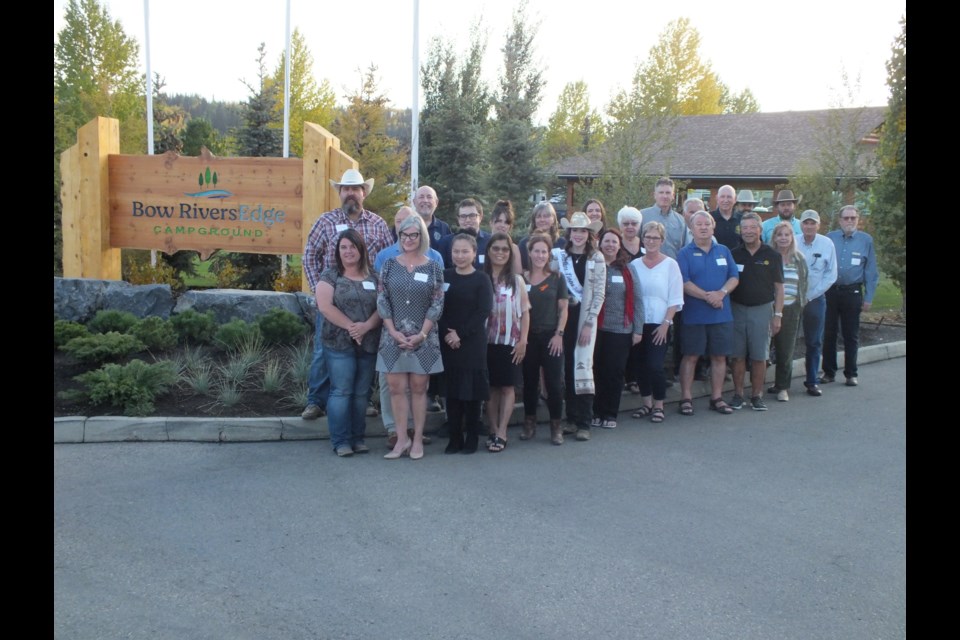The Bow RiversEdge Campground Society (BRECS) celebrated their annual grant allocations totalling $60,000 to 16 Cochrane-area recipients at a gala presentation at the campground Sept. 28.
The Rotary Club of Cochrane and Cochrane Lions Club, as co-founders and managers of the Bow RiversEdge Campground Society, have established a way to give back to Cochrane and area with proceeds from campers’ bookings. The Bow RiversEdge Campground Society Re-investment Committee reviews funding applications and distributes grants annually to local non-profits and organizations that have a positive impact on youth, sports and recreation, arts and culture, the environment, and general community services.
BRECS has invested approximately $1 million back into the community since the campground opened in 2005.
Chair of the BRECS Board Jim Thorne said he was disappointed he couldn’t attend this year’s event in person (he was under the weather) to congratulate the various charities that will benefit from the grants.
“It’s really been a successful venture for us,” he said.
There is no single criterium for the judges to decide which groups are worthy of the grants, other than need, according to Thorne. Instead, it’s based on how well they present their case, and may include such info as how they’re receiving funding from other sources as well.
“We realize there are groups and people in need in the community and we’re happy and proud to be able to offer this as a way to help them out,” Thorne said.
Groups like the Cochrane & Area Victims’ Services (CAVS) is among those that have benefitted from the grants. Two years ago, they used their funds to purchase a robot that aids them in helping kids cope in crisis situations.
Buddy the robot can be used by anyone with a laptop – staff, parents, or kids. it can be programmed to greet the child by name, play rock-paper-scissors, dance, or provide information relevant to that kid’s situation.
Executive Director of CAVS Lauren Delahunt said the robot they purchased with funds from the BRECS grant has special meaning for her, as a robot helped her son cope with the stress of a hospitalization.
When kids go into a hospital, there is a tendency for parents to tell them things like the needles aren’t going to hurt, and when they do hurt a bit, Delahunt said the child can lose trust.
“The robot provides accurate information, so the children create trust and they know what’s going to happen,” she said.
Kids can be overwhelmed with information in a situation like that, and she said after the experience, the main thing her son remembered was the robot. Her son had his procedure, and came home fine.
“At the end of the day, and still to this day the only thing he remembers is his dance with the robot,” she said.
“It was pretty powerful – he doesn’t remember a thing, but meeting NEDi.”
Delahunt said that experience helped open her eyes to the potential of robots as a tool to help kids navigate the court and police systems in a positive way.




